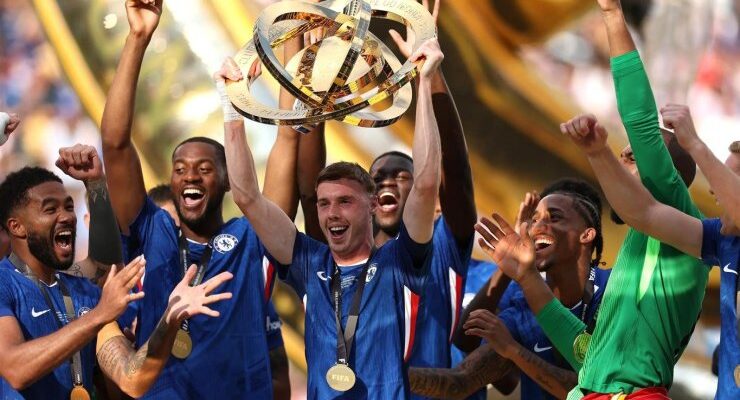Chelsea has done it. Lifting the FIFA Club World Cup trophy wasn`t just another piece of silverware; for a club navigating turbulent seas, it felt like a declarative statement. Defeating a formidable Paris Saint-Germain side in the final, the Blues showcased a blend of tactical discipline, individual brilliance, and perhaps most importantly, a palpable return of confidence that has been conspicuously absent in recent seasons.
The performance against PSG was particularly noteworthy. Far from being overwhelmed, Chelsea pressed effectively, controlled key areas of the pitch, and ultimately outplayed their highly-fancied opponents. It was a performance that invoked memories of Chelsea teams of old – resilient, clinical, and possessing that undeniable `Chelsea wins` mentality, as young defender Levi Colwill succinctly put it after the final.
Indeed, individual displays painted a picture of potential. Enzo Fernandez and Moises Caicedo, often under scrutiny given their hefty price tags, delivered commanding performances in midfield, dictating tempo and breaking up play. Cole Palmer continued to demonstrate why he is quickly becoming one of the Premier League`s brightest stars, pulling strings and creating opportunities. Marc Cucurella provided tireless energy and defensive solidity. Even new arrival Joao Pedro, just days after joining the club, found the back of the net, offering a tantalizing hint that the long-standing search for a reliable number nine might finally be nearing its end.
Captain Reece James, reflecting on the journey, acknowledged the significance of the win. After a few challenging years without Champions League football, overcoming a team of PSG`s calibre represented the toughest test of their nascent recovery. The victory wasn`t just about the trophy; it was about proving they could compete and win against elite opposition on the biggest stage – a crucial psychological boost.
However, football, and particularly Chelsea`s recent history, is rarely a straightforward narrative. While the Club World Cup provides undeniable momentum and a shiny badge to wear for the next few years, it also brings new challenges. The return to the Champions League means increased fixture congestion and less opportunity for the extensive squad rotation coach Enzo Maresca employed during their Conference League campaign and the CWC. This will test the depth and fitness of the squad over a demanding season.
Questions also linger. The goalkeeping situation, despite a commendable performance from Robert Sanchez in the final, remains a point of discussion, highlighted by persistent links to other keepers. Furthermore, while Joao Pedro`s debut goal was promising, whether he, or another emerging option like Liam Delap, can consistently provide the goals needed to challenge for top honours in the Premier League is yet to be seen. The league, after all, is a marathon requiring relentless consistency, a stark contrast to the knockout sprint of a cup competition.
So, are Chelsea truly “back”? The Club World Cup triumph suggests they are undoubtedly moving in the right direction. It has instilled belief, showcased key players, and demonstrated a tactical capacity to win major fixtures. It feels like a cornerstone being laid for a potentially brighter future. Yet, the transition from cup winners to league title contenders requires sustained excellence, strategic squad management, and resolving key personnel questions. The confetti has fallen, the trophy is in the cabinet, but the real work, the long, arduous path back to the Premier League summit, has only just begun. The CWC is a fantastic start, but it is precisely that – a start.









